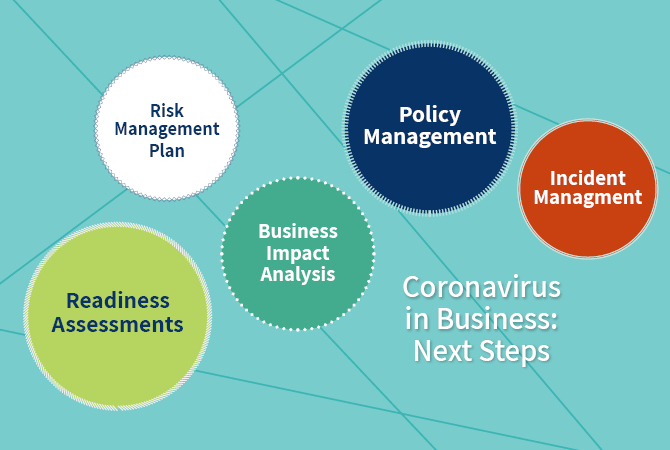Pandemic Risk Management: Strategies for Resilient Business Operations

Pandemic Risk Management: Strategies for Resilient Business Operations
The ongoing global pandemic has underscored the critical importance of effective risk management strategies for businesses. As organizations navigate unprecedented challenges, a robust pandemic risk management plan becomes indispensable.
Understanding the Pandemic Landscape
In crafting an effective pandemic risk management strategy, the first step is gaining a comprehensive understanding of the current landscape. This involves staying informed about the latest developments, monitoring health guidelines, and assessing the specific risks that the organization faces.
Implementing Safety Protocols
One of the primary components of a robust pandemic risk management plan is the implementation of stringent safety protocols. This includes measures such as regular sanitization, social distancing, and providing personal protective equipment (PPE) to employees. These actions not only safeguard the workforce but also contribute to the overall resilience of the business.
Prioritizing Employee Health and Well-being
A key aspect of pandemic risk management is prioritizing the health and well-being of employees. This involves not only physical health but also addressing mental health challenges that may arise during these challenging times. Offering support services and fostering a culture of open communication can significantly contribute to employee well-being.
Developing Emergency Response Plans
To effectively manage pandemic-related risks, organizations must have well-defined emergency response plans in place. These plans should outline specific steps to be taken in the event of an outbreak within the workforce or the community, ensuring a swift and coordinated response.
Implementing Remote Work Solutions
The rise of remote work has become a pivotal element in pandemic risk management. Establishing reliable remote work solutions allows business operations to continue seamlessly while minimizing the risk of virus transmission among employees.
Ensuring Compliance with Health Guidelines
Adherence to health guidelines and regulations is non-negotiable in pandemic risk management. Organizations must stay vigilant and adapt their policies and practices in accordance with evolving guidelines to maintain a safe and compliant work environment.
Collaborating with Health Authorities
Building strong partnerships with health authorities and experts is crucial. Regular consultations with relevant health agencies can provide valuable insights and ensure that the organization’s risk management strategies align with the latest scientific and medical recommendations.
Investing in Training and Awareness Programs
Education is a powerful tool in pandemic risk management. Investing in training programs that educate employees about health protocols, safety measures, and the importance of adherence can significantly enhance the effectiveness of risk management efforts.
Monitoring and Adjusting Strategies
Pandemic risk management is an ongoing process that requires continuous monitoring and adjustment. Regularly assessing the effectiveness of implemented strategies, gathering feedback from employees, and staying abreast of emerging developments are essential for refining and improving the overall approach.
In conclusion, navigating the complexities of a pandemic requires a multifaceted and adaptive approach to risk management. By prioritizing employee well-being, implementing safety measures, and staying informed, organizations can build resilience and ensure the continuity of their operations in the face of unprecedented challenges.
For further insights into effective pandemic risk management, visit The Healthy Consumer website. Stay informed, stay safe.
Resilient Preparedness: Navigating Challenges Amidst Pandemic

Resilient Preparedness: Navigating Challenges Amidst Pandemic
The ongoing global pandemic has underscored the importance of preparedness in facing unforeseen challenges. In this article, we delve into the key strategies and considerations for fostering resilient preparedness amidst the uncertainties of the pandemic.
Understanding Preparedness: A Proactive Mindset
Preparedness involves adopting a proactive mindset to anticipate and respond effectively to potential challenges. It goes beyond mere contingency planning and emphasizes the continuous assessment and enhancement of capabilities to navigate uncertainties. Understanding the dynamic nature of the pandemic prompts individuals and communities to prioritize preparedness.
Health and Safety Protocols: Foundations of Pandemic Preparedness
A fundamental aspect of preparedness amidst the pandemic is the adoption of health and safety protocols. This includes adhering to guidelines such as wearing masks, practicing social distancing, and maintaining proper hygiene. These protocols not only contribute to personal well-being but also play a collective role in minimizing the spread of the virus.
Emergency Planning: Establishing Protocols for Crisis Response
Preparedness requires establishing comprehensive emergency planning protocols. This involves identifying potential risks, developing response strategies, and ensuring effective communication channels. By having well-defined plans in place, individuals and organizations can respond swiftly and efficiently to unexpected situations, mitigating the impact of crises.
Supply Chain Resilience: Ensuring Access to Essentials
The pandemic has highlighted the significance of supply chain resilience. Preparedness includes assessing and fortifying supply chains to ensure a continuous flow of essential goods and services. Diversifying suppliers, stockpiling critical resources, and implementing responsive logistics contribute to a resilient supply chain, even in the face of disruptions.
Remote Work and Digital Infrastructure: Adapting to a New Normal
Preparedness in the pandemic era involves adapting to new work paradigms. Establishing robust remote work infrastructure and digital capabilities is essential. This not only ensures business continuity but also contributes to the adaptability of individuals and organizations in the face of evolving challenges.
Financial Planning and Savings: Building Economic Resilience
Economic preparedness is a crucial aspect of navigating the pandemic’s uncertainties. Building savings, creating emergency funds, and adopting prudent financial planning contribute to economic resilience. Individuals and businesses that are financially prepared can weather economic disruptions more effectively.
Community Engagement and Support: Strengthening Social Resilience
Preparedness extends to community engagement and support. Strengthening social bonds, fostering a sense of community, and supporting vulnerable populations contribute to social resilience. In times of crisis, communities that come together can provide essential support networks and resources.
Educational Initiatives: Nurturing Knowledge and Awareness
Preparedness requires educational initiatives that nurture knowledge and awareness. Informing the public about health guidelines, emergency procedures, and crisis response strategies enhances overall preparedness. Well-informed individuals are better equipped to make sound decisions in challenging situations.
Mental and Emotional Well-being: Prioritizing Psychological Resilience
The pandemic has brought to light the importance of mental and emotional well-being in preparedness. Prioritizing psychological resilience involves providing access to mental health resources, fostering open communication, and reducing the stigma associated with seeking support. Individuals with strong mental well-being are better prepared to cope with the challenges of the pandemic.
Accessing Preparedness Amidst Pandemic: A Comprehensive Resource
For additional insights and resources on fostering resilient preparedness amidst the pandemic, consider exploring Preparedness Amidst Pandemic. This centralized hub offers valuable information, practical tips, and support for individuals and communities striving to navigate the complexities of the ongoing pandemic with resilience and determination.




(501).jpg)

